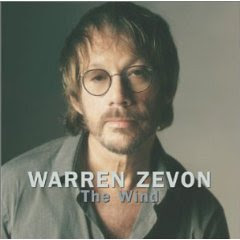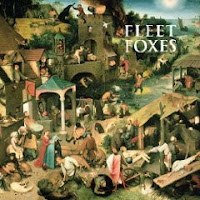
Since this album just came out last year, I'm going to reprint my original review, and then add some comments at the end. Here goes:
When I was growing up, the All-Star Game was a really big deal to me. I would root fervently for the National League, and back in those days, the National League always won.
One of the most exciting All-Star Games was in 1970, at the late, unlamented Riverfront Stadium in Cincinnati. The American League led the entire game, until a furious rally tied it in the bottom of the ninth. The game remained at 4-4 until the bottom of the twelfth, when Pete Rose bowled over Ray Fosse to score the winning run, in one of the most famous (and most replayed) All-Star Game plays of all time. At the time, Fosse was an up-and-coming star, and Rose was on his way to becoming a legend (in ways good and bad), in the first year of the Big Red Machine. Fosse was injured on the play – seriously enough for him to writhe in agony on the ground around home plate for several minutes. He went on to have a solid career, but never approached the potential that many felt he had before that fateful play.
The first song on
Vol 1: Frozen Ropes and Dying Quails, the new album by The Baseball Project, is “Past Time.” It begins as follows:
When Campy Campaneris played all nine positions in a game.
When Pete Rose demolished Ray Fosse he was never the same.
31 wins and an album on Capitol for Denny McClain.
So long ago, so long, Pastime, are you past your prime?
When listeners hear those words, their reaction is most likely to fall into one of two categories: “Wow, these guys really know their baseball,” or “Huh?” But even if your reaction is the latter, you might want to give
Vol. 1 a shot. Because sometimes, the best music comes from where you least expect it. If someone had told me six months ago that my favorite album of the year would be an album consisting entirely of songs about baseball and baseball players, I probably would have laughed, or sneered and said “yeah, right.”
The brainchild of Dream Syndicate founder Steve Wynn and longtime R.E.M. sideman Scott McCaughey (joined by drummer Linda Pitmon and R.E.M.’s Peter Buck on various stringed instruments),
Vol. 1 is an amazing piece of work, one which captures both the grand history and landscapes of baseball, while providing insight into some of the game’s most popular and/or colorful figures, among them Ted Williams, Willie Mays, Big Ed Delahanty, Fernando Valenzuela, Curt Flood, Jackie Robinson, Harvey Haddix, Black Jack McDowell, Satchel Paige, and Mark McGwire. Those players ran the gamut of personalities and played in vastly different eras, but all had great stories behind them - from the legendary “12-inning perfect game that wasn’t” by Haddix, to the trials and tribulations of Ted Williams, supplanted only by Barry Bonds as the game’s least-loved superstar.
What may be most amazing about the album is the way each song gets into the heads of these latter-day heroes, and paints a picture that feels real, and altogether realistic. For example, you can easily imagine Curt Flood (in “Gratitude (for Curt Flood)”) saying something like this:
Now everyone’s walking like they’re rolling in dough.
Throwing all their money around just for show.
Acting like everything is coming to them and knowing that more is just around the bend.
But I’m the one who paved the way and laid my body in the road so you can walk on it today.
I stood right up when they tried to put me down.
You’re so high up, you forget to look down!
You call that gratitude?
Or, Jackie Robinson saying something along these lines (from “Jackie’s Lament”):
If I ever get the chance I’ll let them know just how I feel.
I’d like to speak my mind but that just wasn’t in the deal.
It’s never being easy being first to walk down any road.
I’d trade the glory just to crawl out from this heavy load.
You should hear the things they say behind my back and when I turn the other cheek, they only sharpen their attack.
Which is really just a different way of saying, as Bill James did in the Historical Baseball Abstract:
“…Because so much attention was focused on Robinson, his skills may have been driven more deeply into the public’s mind than the quiet skills of a Red Schoendienst, a Nellie Fox. That is fair, too, for with that attention came a kind of pressure that perhaps no other major league player has had to contend with. Jackie Robinson consumed that pressure and was nourished by it."
Not every song on the album carries the sadness of those two; there is also much humor to be found on
Vol. 1 - not to mention a good (but healthy) dollop of nostalgia. But the album’s best songs – those above, plus “Broken Man” (about Mark McGwire), “Long Before My Time” (Sandy Koufax), “Sometimes I Dream of Willie Mays,” “Fernando,” “The Closer” – all just contain a bit of melancholy - recognizing that in this sport, failure and doubt are on the field at all times, right beside fame and glory.
The music is also great – if you didn’t know that “Fernando” and “The Yankee Flipper,” for instance, were about baseball, you could appreciate them just for the depth of the music. Truth be told, there isn’t a bad song on the album.
New thoughts:In a subsequent post, I gave myself a hard time for failing to mention "Ted F*cking Williams," without question the funniest song on the album. Anyone who's ever read "Ball Four" knows the story of how Ted Williams used to psyche himself up during batting practice -
"I'm Ted F*cking Williams, and I'm the greatest f*cking hitter in baseball!"In the past few months I've had this in heavy rotation on my MP3 player, and I've never gotten tired of a single song. But the one that's grown the most for me is "Harvey Haddix," which tells the story of the pitcher who probably pitched the greatest game in the history of baseball, but has very little to show for it today.
I won't deny it - one's enjoyment of this album will be increased by a significant amount if they are a baseball fan. Notwithstanding that, it is a great album - #15 of the decade, in fact.

 I.
I.  The trend of eponymously titled albums continues with "Fleet Foxes," the band's magnificent debut album, released just a little over a year ago.
The trend of eponymously titled albums continues with "Fleet Foxes," the band's magnificent debut album, released just a little over a year ago. Upon its release in 2003, “Liz Phair” was widely reviled by a vast majority of critics. And the critics didn’t stop with attacking the album – they attacked Phair herself, essentially accusing her of betrayal – betrayal of her artistic integrity, betrayal of her fans, betrayal of her debut album, “Exile in Guyville.” Some examples:
Upon its release in 2003, “Liz Phair” was widely reviled by a vast majority of critics. And the critics didn’t stop with attacking the album – they attacked Phair herself, essentially accusing her of betrayal – betrayal of her artistic integrity, betrayal of her fans, betrayal of her debut album, “Exile in Guyville.” Some examples: My dad and I attended our first Sacramento Kings game of the season tonight - the 25th season for the Kings, and our 25th season as part of a season ticket group.
My dad and I attended our first Sacramento Kings game of the season tonight - the 25th season for the Kings, and our 25th season as part of a season ticket group. Since this album just came out last year, I'm going to reprint my original review, and then add some comments at the end. Here goes:
Since this album just came out last year, I'm going to reprint my original review, and then add some comments at the end. Here goes: When I first wrote about "Kala" upon its release in 2007, I wrote: "The best part of it is that it just sounds exciting – music that you want to tell someone about..."
When I first wrote about "Kala" upon its release in 2007, I wrote: "The best part of it is that it just sounds exciting – music that you want to tell someone about..." A couple of weeks ago, I wrote that I couldn't imagine that Sean Penn's performance in "Milk" could have matched up to Mickey Rourke's performance in "The Wrestler."
A couple of weeks ago, I wrote that I couldn't imagine that Sean Penn's performance in "Milk" could have matched up to Mickey Rourke's performance in "The Wrestler."